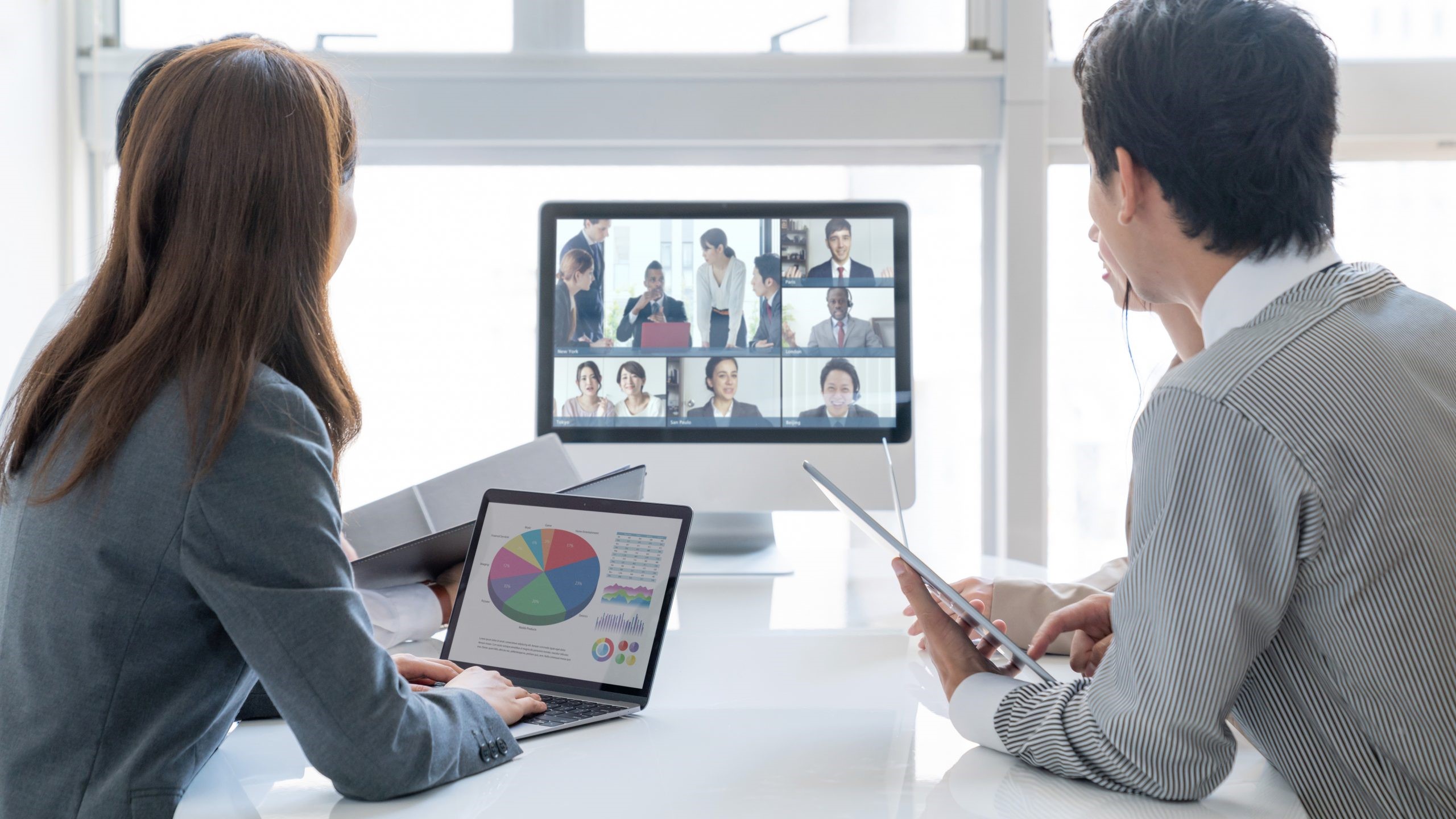The hardware supercharging video conferencing
Video conferencing is here to stay, so how can you make sure your setup is the best it can be?

The last few years have seen incredible changes in many parts of our everyday lives, not least in how we work, with hybrid working split across multiple locations now commonplace for many businesses.
Video conferencing has also now undoubtedly become part of our working lives, with a good webcam, microphone or headset among the most vital hardware we own. But now we all (hopefully) know how to start a video call and carry on without realising we're on mute, what are the next steps for making sure we use the technology to its fullest at work?
One of the best things about the current big players in the video conferencing space is just how straightforward many of the main tools are to use.
Whether it's Zoom, Microsoft Teams, Google Meet or any other offering, with just a few clicks you can be all set up and talking to colleagues, co-workers or family.
By now, many of us should have a video conferencing setup sorted in our homes, with your employer hopefully helping provide all the necessary kit. The number of employees working remotely has increased by 140% since 2005, and this number will only continue to grow over the next few years, so making sure remote workers are connected has never been more important.
If your remote employees aren’t already seeing the benefits of video conferencing, now is the time to get them set up with the right equipment, whether that’s a standalone webcam, business headset, microphones or whatever is needed. There is no doubt that remote working leads to a significant increase in productivity, and having the right tools for the job is a major part of that.
When workers are in the office, it’s therefore important to make sure the transition is as smooth as possible, with the right video conferencing services playing a key role.
Are you a pro? Subscribe to our newsletter
Sign up to the TechRadar Pro newsletter to get all the top news, opinion, features and guidance your business needs to succeed!
Recent research from Upwork claimed that video conferencing is being utilised more than other systems such as messaging software, project productivity software, and even corporate management software, so making sure you're able to equip your office with the hardware your workers need is vital.
By 2025, Gartner predicts 50% percent of all enterprise virtual events will occur on the video meeting platform already deployed by a business, so making sure you’re happy with the system you have deployed is a useful first step.
Rather than having employees join video calls from their desks, and risk disturbing those around them with loud talking, consider investing in a dedicated video call space such as a boardroom or meeting room. This can be equipped with everything you need to ensure your calls are productive, high-quality and you get the outcome you wanted.

As mentioned, it's pretty important to be able to see who you're talking to, so having a high-quality display is vital. The bigger the screen, the more participants you'll be able to fit in when on a video call, so consider investing in a larger 4K display if that's within your budget.
Some displays may come with a webcam built-in, but for the highest quality video conferencing calls, it's well worth splashing out on a high-definition webcam. The higher the resolution, the better the quality will be for all call participants, and having a clear image can even help boost morale and team feeling when separated across different locations.
Although many TVs and display screens will come with speakers included, consider purchasing a standalone connected speaker that can sit in the middle of your room's seating. Having a central audio source will mean that everyone in the room can clearly hear exactly what's being said. Many top-end speakers will also come with integrated microphones, again meaning that everyone in the room is able to contribute and be clearly heard by all participants on the call.
Some speaker and microphone setups are even able to detect exactly who is talking within a meeting room, and tilt and focus accordingly to make sure they are heard, so if your meetings will be busy, it seems smart to invest in such an intelligent solution.
Ultimately though - particularly with remote working now becoming more popular than ever before - it’s likely that your employees will be hunting for portable, reliable laptop devices for their video conferencing needs. While additional microphones, cameras and other kit can enhance their video conferencing experience, without the firm basis of a reliable PC, workers will struggle.
Making sure they are equipped with a device that has long-lasting battery life alongside good quality audio and video wherever employees are based is paramount for keeping everyone connected. Doing that extra bit of research can go a long way.
So it can be seen that succeeding in video conferencing isn't just down to using the right software - the hardware you use can also play a vital role. If you're looking to make your calls clearer and more efficient, now is the time to make a serious investment into getting the right kit to make sure your voices are heard, and your business is seen as crisply as it can be.